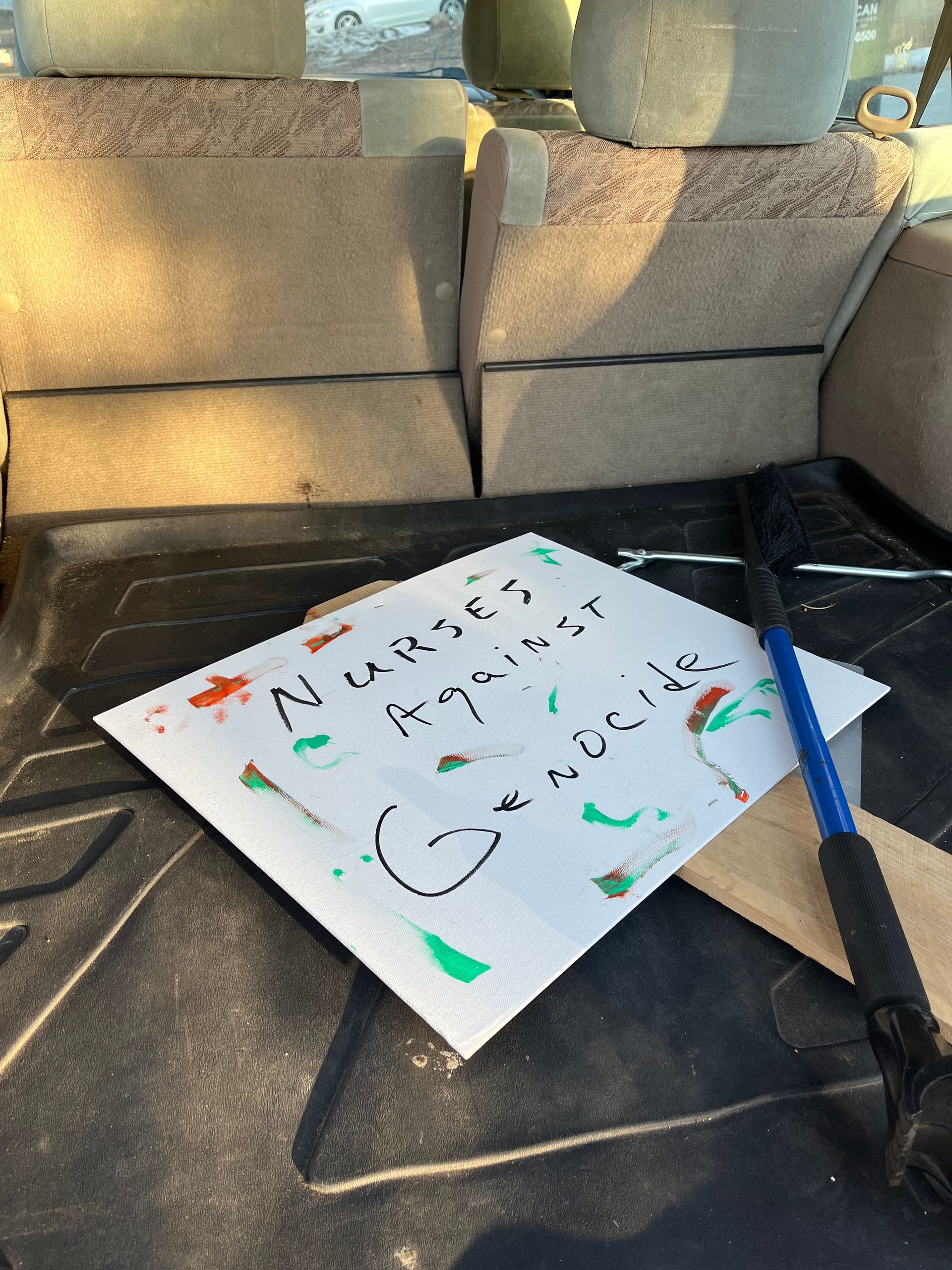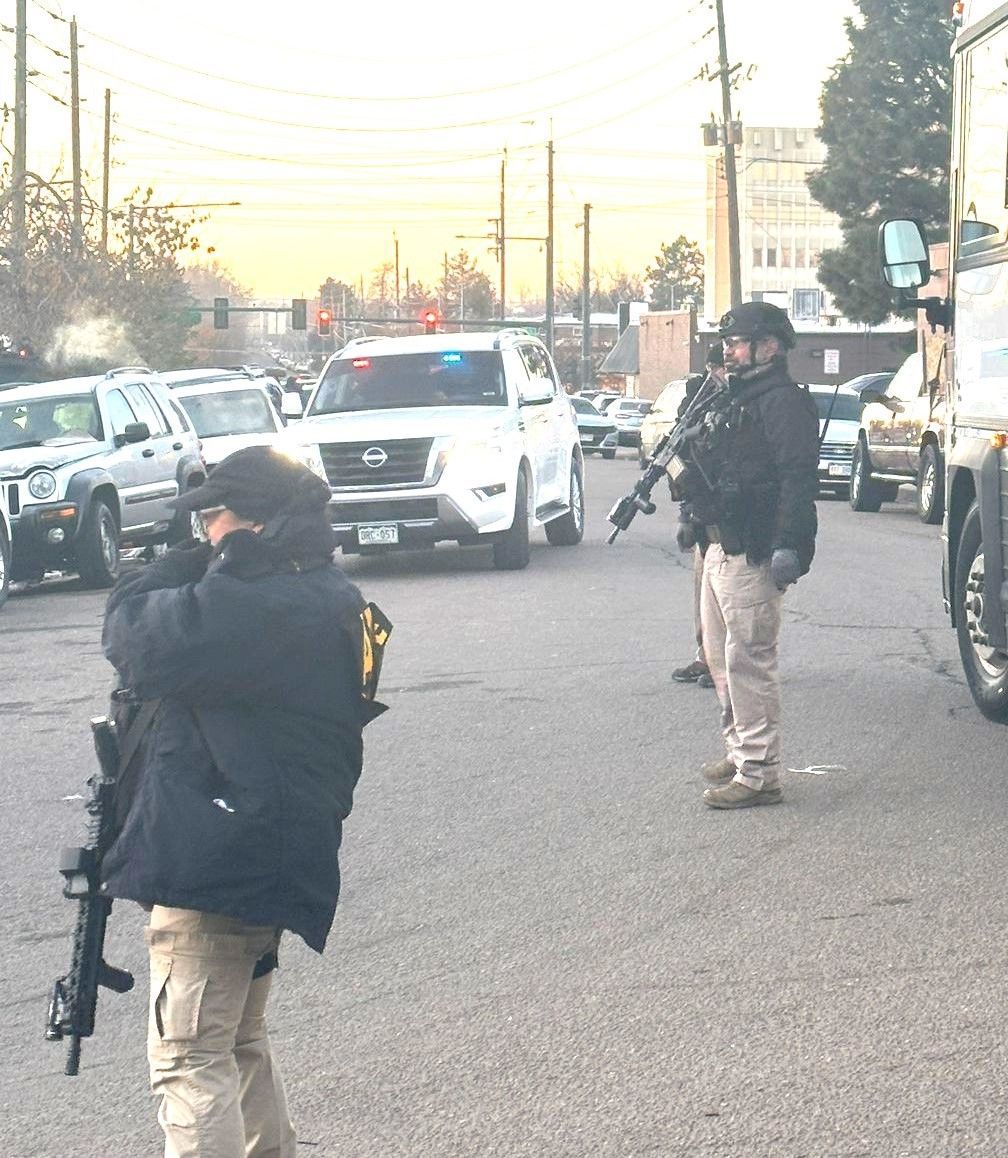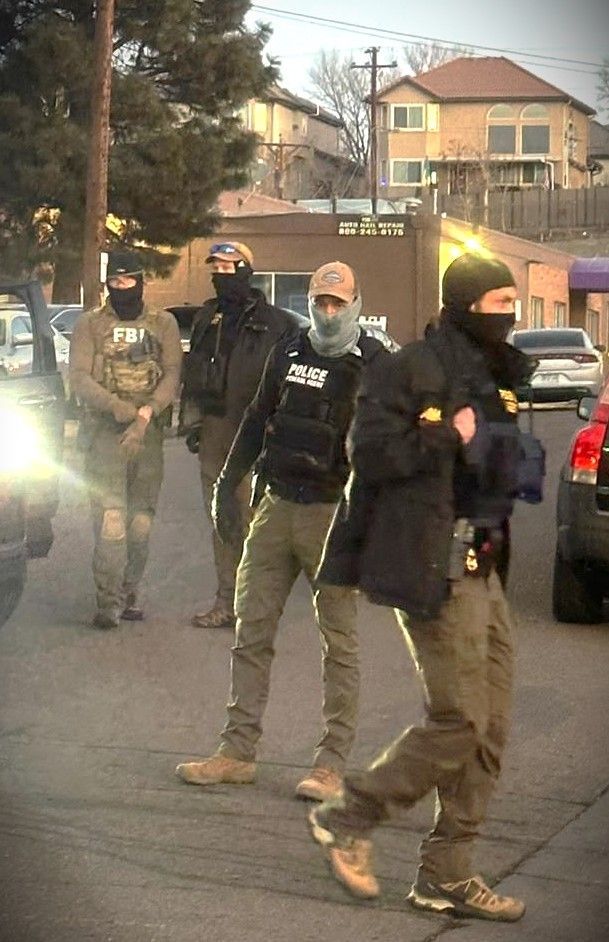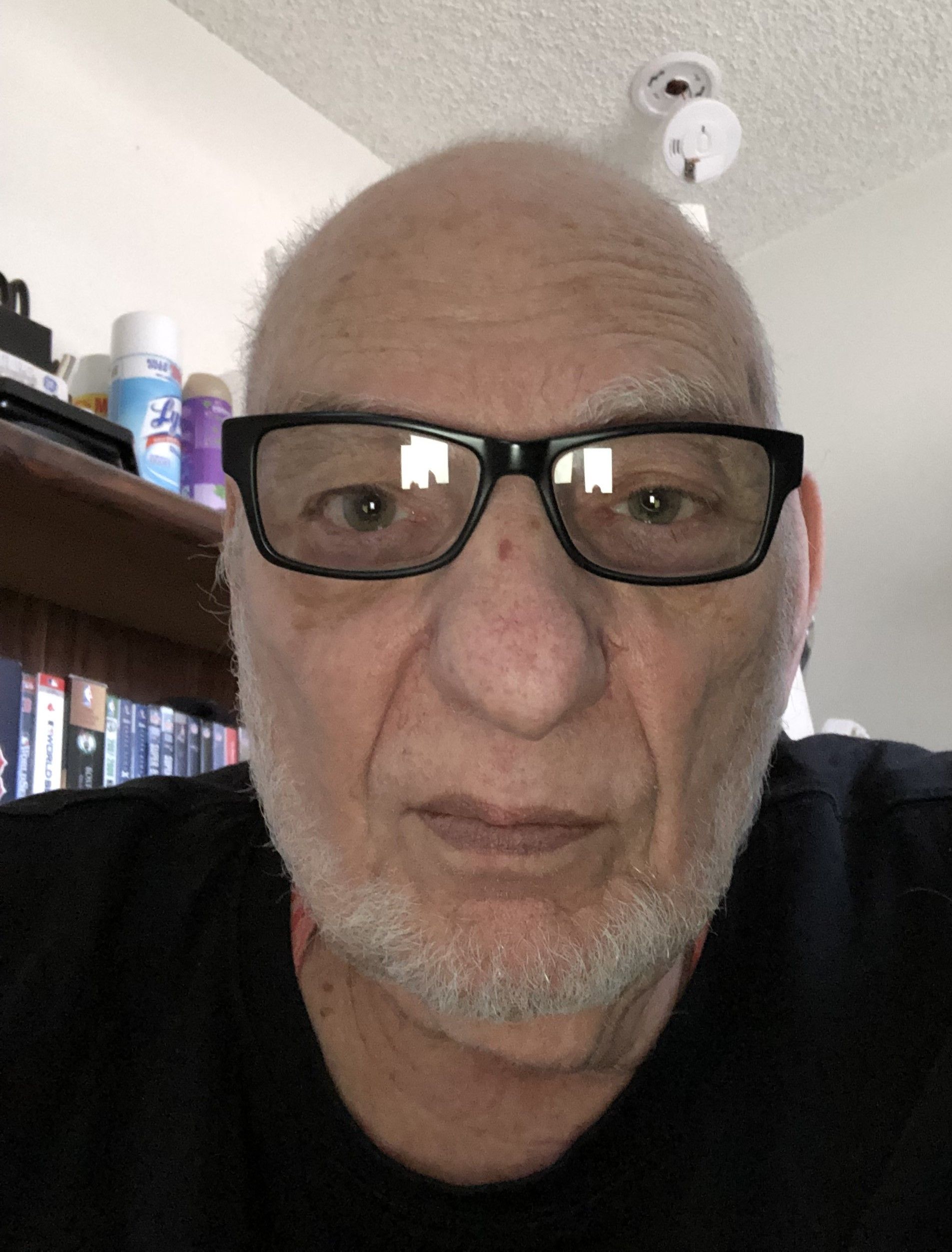Thursday's Columns
February 6, 2025
Breaking News
This morning we received photos from our Venezuelan friends of an ongoing immigration raid here in Denver.
In the past decade, eight million Venezuelans have fled their homeland to escape years of crippling U.S. economic sanctions. Most went to Columbia and other Latin American countries, but some walked through jungles to get here.
They're now being shipped back, at gunpoint, in plain sight, even for kids on their way to school to see. And that's the breaking news today -- the many faces of genocide.



--30--
Our
Story
by
Lawrence Abby Gauthier
ace reporter
The Westphalia Periodic News
I hurt my friend Bernie.
I feel terrible about it.
I want to do no harm. I grew up in a hunting culture but could never shoot Bambi. When I became a VA nurse, I took a vow to do no harm. My first over-the-road mentor at truck driving school, who’d been a sniper in Vietnam, said the best truckers were the ones whose first thought in a situation was to do no harm.
Nevertheless, I hurt my friend Bernie.
It was hard to listen to my friend on the phone telling me that I had hurt him. And he said other things. He said I had lost my way as a fair and objective journalist; that I’d misled with misleading information. Basically, he said that I didn’t know what I was talking about in my recent NURSES AGAINST GENOCIDE columns.
The columns were biased, he said, against Israel.
But was it my fault that you can’t even think the word “genocide” these days without immediately bringing to mind the television images of a small coastal area along the Mediterranean’s eastern shore, literally pulverized? I’m sure there are Palestinians who would like to do the same to Tel Aviv. But they don’t have the bombs to create the vivid images you need to make the nightly news.
Not that Bernie supports what’s been going on over there. He has no love for Netanyahu, or, as he puts it, “the ruling power of religious zealots.” Israel, he says, was founded as a secular nation, but has strayed from the ideal. But, as he correctly pointed out, my columns lacked any mention of all the other genocides going on in the world right now. Nothing about the Horn of Africa, southeast Asia, or even America’s economic sanctions designed to weaken populations into slow extinction. Sanctioned genocide. Unaffordable health care, or food, or shelter. What’s un-genocidal about that?
Something bigger was going on, Bernie said. By focusing only on Israel, we lose sight of that and can’t know what’s really happening.
That’s what I liked about Bernie right off the bat when I first met him about six years ago not long after I retired and decided to make my final stand in Denver because that’s where all the kids and grandchildren had wound up.
I met him at a social gathering of maybe thirty people in a country home southeast of the Denver metropolitan area. It was hosted by the local chapter of the national Freedom From Religion Foundation (FFRF).
I was not a card-carrying member of FFRF, although I’ve got nothing against the concept of separating church and state. I had wound up there because I had recently met a retired university professor and novelist (Culley Jane, of course) on a dating site, and she was a FFRF member and she invited me to go along with her to the gathering. She had quickly sized me up as a classic extrovert and said I’d probably meet interesting people there. As I’ve learned since that she usually is, she was right. I met Bernie.
People were wandering about like molecules attracted to one conversation clutch after another. Most were drinking wine from long-stem glasses. I found the beer cooler. That’s where I met Bernie.
Bernie was a writer, too! So we had lots to talk about. He told me about the book he published in 2015 — Blood of My Fathers, a historical novel based on the life of North Korea’s Kim Jong-un. How often do you get to meet somebody who writes a book like that?
Like I asked everybody I got into a conversation with there, I asked him how he’d wound up at a gathering like this if not just for the free beer and hamburgers out back on the patio on a warm fall day with a view of the High Plains to the east and the Rockies to the west.
From what, I wanted to know, did he want to be free?
That’s when Bernie told me that he was Jewish, but then quickly added that he was an atheist. He said he didn't want to be free from religion, but was free.
But is it possible to ever get completely get away from it. Threads will always remain. At least for a brief moment every Friday a thought will come to me about mom’s Friday night fish dinners, usually fresh caught perch from Lake Antoine. Bernie still remembers Jewish events with names I can’t even spell or pronounce.
Some years back, I dated a Jewish woman, a concert violinist and teacher, and learned a few things, like why have there been so many Jewish Nobel Prize winners. Her last name was Mendelssohn, distantly descended from Moses Mendelssohn, father of the Haskalah, or the so-called Jewish Enlightenment, centered in 18th century Germany. Moses was a follower of Leibniz… (But that’s a story for another day.)
Bernie grew up Jewish in Columbus, Ohio. His baseball hero was Brooklyn’s Sandy Koufax… Einstein, Heisenberg… Jews at the birth of the miracles of the quantum world.
I grew up French-Canadian in the U.P. My ski jumping hero was the French-Canadian Jacques Charland. For Christmas this year, my oldest daughter, Elli, gave me a framed print of the Statue of Liberty being constructed at the Gauthier foundry in Paris, France,
In subtle but not insignificant ways, we’re all creations of the history we know of “our people.” His had a religion called Judaism. I had one called Catholicism. He learned Hebrew. I learned Latin.
I used the word “genocide” in the context of what everybody is watching on television and it hurt my friend deeply. No! It’s something larger than that. The whole is always greater than the sum of its parts. I see it more clearly now. Thanks, Bernie.
--30--
Letters to the Editor
Jerry Gilbert
Denver
Retired Clinical Psychologist

Dr. Jerry Gilbert
My first reaction to Mr. Chaet’s column last week was that it echoed FDR’s famous quote: “We have nothing to fear but fear itself.” True enough that fear can not only produce much distress, but also bad decisions & behavior. As with many succinct & famous quotes, it is limited in its value. It is also possible for fear to become a catalyst for constructive change: in our thinking, feelings, & behavior. As he points out, it is getting “stuck” that contributes to further negative outcomes.
Mr. Chaet states: “I doubt that any suffering is worse than fear of suffering.” Being doubtful of this seems wise. I don’t know if Mr. Chaet speaks from personal experience, but my guess is that there are, unfortunately, many people whose suffering is so bad & so prolonged that they would gladly trade it in for fear.
It was good to read that Mr. Chaet focused on the encouraging perspective of valuing what we are capable of, what we have achieved, & what we can still achieve. We very much need ongoing encouragement—from ourselves & others. I liked this quote: “you develop your drop as best you can, forgiving yourself for what you can’t do, surviving (homeostasis)—& achieve other & better & more—that is, more & more effectively, yet with wisdom, with compassion, tempering your instinctive, passionate reactions to circumstances & your appetites, which know no reason—not per dogma, but strategically—that is, to your greatest advantage.”
However, I didn’t like his discussion of the value of relationships. It sounded to me as though our choice of relationships was based primarily on the value they provide for us—a very utilitarian view that seems to omit the complexity of companionship.
I especially disliked his quote: “Succumbing to fear is called cowardice.” To be fair, perhaps he was only referring to how most people think of succumbing to fear & may not agree with them. Even then, I don’t see the point of including it. His further comments suggest a strong influence from Stoicism, a philosophy I value, but recognize its limitations. Stoics consider courage to be one of the main virtues. But, again, they fail to examine the complexity of such a human characteristic.
I consider such columns to have the goal of stimulating our thinking. That, it has done.
